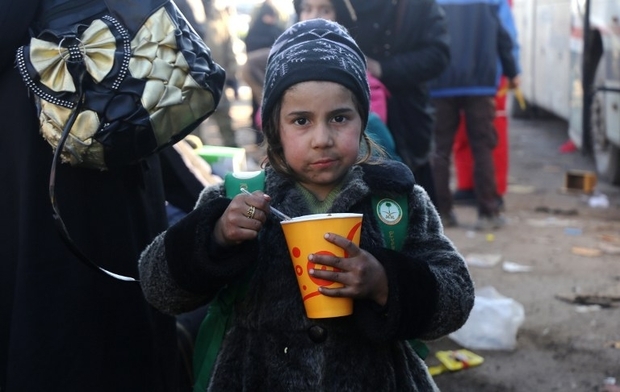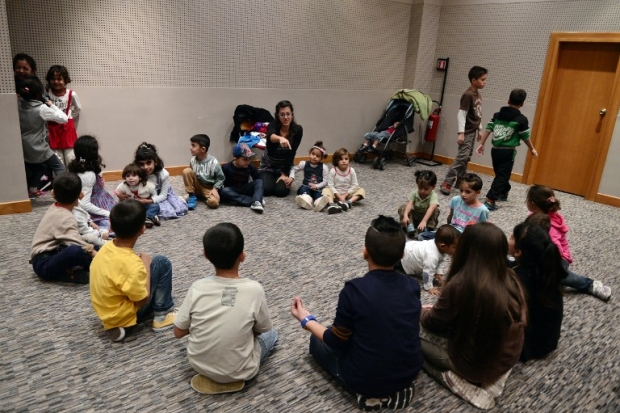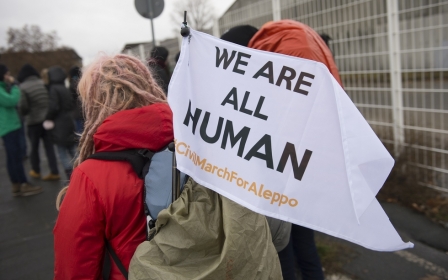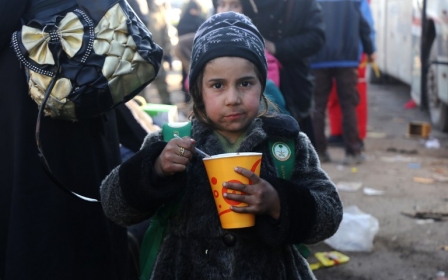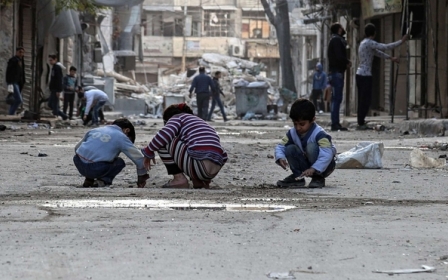There is a way to help Syrians - our intervention must begin at home
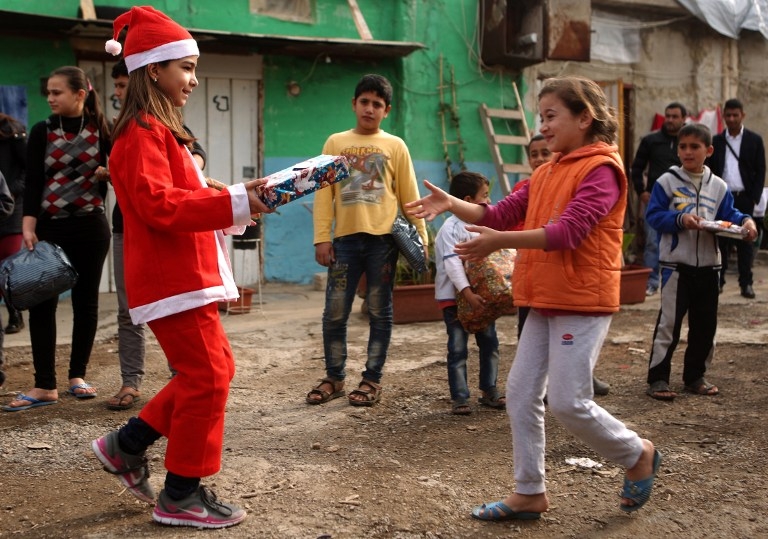
Aleppo has been the subject of one horrific headline after the other, leaving many of us overwhelmed and frustrated. Discussions about what must be done to help the Syrians tend to revolve around contentious words like "intervention", "imperialism" and "no-fly zone", and the focus of such debates is often territorially bound: what can we do in Syria to end the war? Should we intervene? How should we intervene? Would it help to intervene, or would it expand the conflict?
The assumption that Syrians can only be helped over "there" (whether through intervention or anti-imperialism) helps us to think of this conflict as a distant event, disconnected from the way we organise our own societies here in the West.
We might not be able to stop Russian bombardment...but we can fight for the resettlement of Syrians in our own societies
Syria has become the object of political fantasies and discursive navel gazing – especially amongst certain leftist circles, who see it fit that Syrian people are forced to accept their own murder in the name of some lofty anti-imperialist principles.
Needless to say, the situation on the ground is complex – a geopolitical omni-shambles, to put it mildly.
But the Syrian conflict cannot be neatly separated from issues that require engagement in our own societies. We might not be able to stop Russian bombardment, or bring the revolutionary groups together under the flag of Marxism, but we can fight for the resettlement of Syrians in our own societies.
What is happening in Syria demands us to profoundly alter the ways in which we practice our privilege. We must scratch under the fantasy of whom we think ourselves to be.
Half of the Syrian population is at Europe's doorstep, asking for refuge in the hope that they may be able to rebuild their lives again. We can intervene to help them.
As one exasperated friend put it recently, “it would actually mean that we would have to take a meaningful position on this conflict with domestic implications – one that could also be linked to the plight of migrants more broadly.”
This might seem difficult, but it is less difficult than imagining a "just peace through regime change" in Syria.
Firstly, we must properly acquaint ourselves with the deluge of issues that refugees and migrants face on a daily basis; the trauma of war and displacement, the desire to reestablish personal agency in an alien environment, language barriers, culturally insular labour markets, social capital, so on and so forth.
It is also important to scrutinise the ways in which states govern social relations and the rationalities they employ to normalise certain notions of deservedness.
We are incapable of helping Syrians until we reconfigure our societies
For example, in the UK, not only does the state subject refugees and migrants to the most intrusive and humiliating bureaucratic wrangle, but also steps in to curb the supposedly unalienable rights of its citizens when they extend these rights and freedoms to a migrant or refugee.
The imposition of financial thresholds on spousal visas is one glaring example of this: Since July 2012, UK citizens applying to bring a non-EU spouse to the country must meet a minimum income threshold of £18,600 ($22,790) per year before tax. The threshold is higher for those who are also sponsoring children.
This is a coercive technique meant to discourage certain types of personal relationships – a clear assault on the way we practice our citizenship.
In May 2016, a prominent Danish rights activist and author received a hefty fine for “people trafficking” after she and her husband gave a lift to a refugee family.
This criminalisation of common decency is yet another example of the laws being administered in Scandinavian countries to crack down on refugees and migrants.
Reshaping our own societies
One peculiar aspect of power is that it alters the nature of the object it acts upon.
When France banned the Muslim veil, deeming it to be a conspicuous religious symbol out of line with its secular standards, the veil suddenly gained a new life. It reappeared in public space, this time as a political, feminist symbol, evoking the historical memory of French colonialism.
If we wish to help Syrians our intervention must begin at home
Ironically, the political freedoms French ministers claimed to protect by banning the veil came under fire as soon as the ban was enforced.
Similarly, anti-migration action changes the very nature of the societies whose rights and freedoms it acts to protect. As governments try to possess and secure certain freedoms against the perceived threat of outsiders, they also throw a tight noose around citizens' capacity to practice those rights and freedoms.
This is not to say that our sense of altruism should be framed selfishly in relation to the impact of the conflict on our own societies. It is to demonstrate the fact that we are incapable of helping Syrians until we reconfigure our societies.
Given the responsive and effective image of Western democracies, refugees and migrants are often shocked by the inaction of "the free world", which the more socially conscious tend to blame on general human apathy.
However, apathy is not the natural state of any society, nor is any individual ever completely impartial to any passing event. Apathy is a product of certain political mentalities, designed to dramatise some issues over others.
For this reason, we must engage in activities that help us re-examine the inhibiting social order we find ourselves wrapped within.
Earlier this year, I wrote about a squatting movement in Italy that used social occupations to draw attention to the waste of public space by bringing together migrants, refugees and poor locals in a common struggle for housing. The movement tried to build political bonds between groups typically forced into hostile competition with each other.
If there was ever a time to get involved in such subversive activities, it is now; it is time to kick up a fuss, extend our rights and freedoms to create loop-holes that migrants and refugees may benefit from.
If we wish to help Syrians, our intervention must begin at home – we must remember that our rights and freedoms are not meant to be ceremonious taxidermy, decorating the empty corridors of history.
These rights and freedoms are alive and dynamic creations, and they only draw breath when we subject them to political action, in service of those who need us the most.
- Farhad Mirza is a freelance journalist from Lahore, Pakistan. In 2015, he and a team of other journalists and illustrators launched Pakistan's first comics-journalism project. You can follow him on Twitter @FarhadMirza01
The views expressed in this article belong to the author and do not necessarily reflect the editorial policy of Middle East Eye.
Photo: A Lebanese Christian teenager dressed as Santa Claus, hands a gift to a Syrian refugee in Dbayeh, north of Beirut, Lebanon on 24 December, 2016 (AFP)
New MEE newsletter: Jerusalem Dispatch
Sign up to get the latest insights and analysis on Israel-Palestine, alongside Turkey Unpacked and other MEE newsletters
Middle East Eye delivers independent and unrivalled coverage and analysis of the Middle East, North Africa and beyond. To learn more about republishing this content and the associated fees, please fill out this form. More about MEE can be found here.



